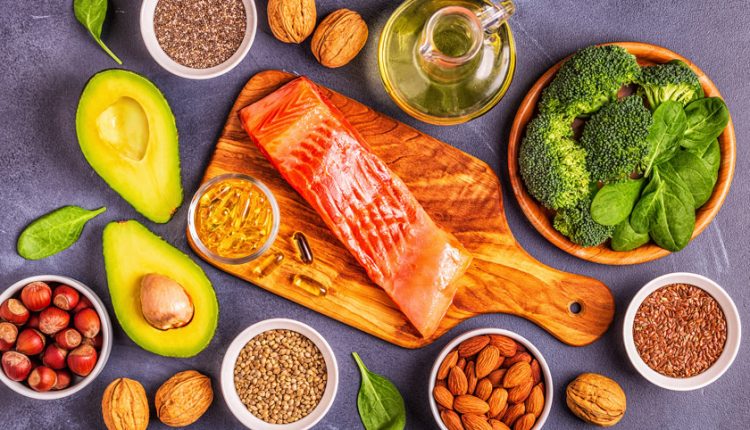
We Are What We Eat. We all have heard that before. But is it possible to prevent Alzheimer’s disease by eating Superfoods or following a specific diet? Studies suggest that the type of food we eat affects our brain’s ability to think and remember as we age. As a result of these findings, researchers have looked into whether general eating patterns make a difference. Here and today, we are going to share their findings with you.
Contents
The Connection Between the Digestive System and the Brain
Early symptoms of Alzheimer’s may not appear until years after the first changes in the brain occur. Detecting these early brain changes may provide a window of opportunity to prevent or delay the onset of dementia symptoms. In contrast to other risk factors for Alzheimer’s, such as age and genetics, lifestyle choices, including diet, exercise, and cognitive training, can be controlled. For example, scientists are studying how biochemical processes related to food intake and digestion affect brain changes.
The following video will provide a brief overview of this subject.
Diet and Brain Health
Researchers are finding that the gut microbiome – the mix of viruses, bacteria, and other microbes in the digestive system – can play a role in the onset and progression of Alzheimer’s disease.
As people age, their gut microbiomes change, leading to disruptions in the immune system, persistent inflammation and chronic diseases, among them neurological disorders.
By identifying the good and bad gut microbes associated with Alzheimer’s, scientists may be able to develop a new method to predict, prevent and treat the disease.
It is also possible that some superfoods affect biological mechanisms, such as oxidative stress and inflammation, that contribute to Alzheimer’s. Or perhaps diet indirectly affects other Alzheimer’s risk factors, such as diabetes, obesity and heart disease.
Next, let’s explore some superfoods and dietary suggestions and their benefits.
The MIND Diet: A Diet Full of Superfoods to Prevent Alzheimer’s
In this diet, Mediterranean and DASH diets work together to benefit your health. The purpose is to prevent or slow the deterioration of the brain.
Read more on the Mediterranean diet prevents dementia
- Mediterranean: Packed with Superfoods, it might increase specific nutrients that shield the brain through anti-inflammatory and antioxidant properties. It may also reduce beta-amyloid buildups, which are found in the brains of Alzheimer’s patients or enhance cell metabolism in ways that guard you against the disease.
- DASH: Dietary strategies to stop hypertension have proven to lower high blood pressure, a risk factor for Alzheimer’s disease.
According to early studies, following the MIND diet precisely lowers Alzheimer’s risk by 53%, while following it more casually may lower it by 35%. This diet was originally meant for healthy older adults but was expanded and modified in 2018 to also apply to stroke-affected octogenarians.
These diets are currently studied more rigorously to determine whether they can prevent or delay Alzheimer’s disease.

Ingredients of the MIND Diet
Now, let’s explore the ingredients of this special diet that helps people who are at risk for Alzheimer’s.
Protein
The diet must include every other day, poultry twice a week, and fish once a week in the diet. Salmon, sardines, trout, tuna and mackerel are high in omega-3 fatty acids and at the top of our superfoods list.
You can also make bean-and-turkey chilli to eat over the next few days. In addition to being high in protein, these foods are also low in saturated fats, making them good for your overall health and brain function.
Vegetables and Grains
Three servings of whole grains and a salad are required each day. Spinach, collard greens, and kale are all good choices, but you can use any vegetable.
Snacks
In terms of brain health, nuts and berries are ideal snacks. In particular, blueberries and strawberries keep the brain working well, possibly slowing Alzheimer’s symptoms.
These foods appear to have anti-inflammatory, antioxidant or other effects that might help protect the brain. It’s safe to say that the health benefits of berries for seniors make them the perfect snacks for anyone who follows the MIND diet.
Wine
Studies have shown that wine improves brain health and protects against Alzheimer’s. Remember to drink it in moderation, though. Overusing it can harm your brain health and increase your risk of dementia.
Olive Oil
It goes perfectly with bread, salad, pasta, and cooked greens. In addition, it protects against dementia and improves brain function over time.
Unhealthy Groups of Ingredients
The Mind diet might include some groups of food we don’t recommend for someone who is at risk for Alzheimer’s. Try to limit your intake of red meat, butter and margarine, cheese, pastries and sweets, and fried or fast food. It’s better to consume no more than four servings a week of red meat, no more than one tablespoon of butter a day, and no more than one serving of whole-fat cheese, fried food, and fast food per week.
read here about: supplements to prevent alzheimer’s

Is the MIND Diet Really Worth It?
MIND diets have been linked with a reduced risk of Alzheimer’s disease and a slower rate of cognitive decline in observational studies of more than 900 dementia-free older adults.
Although, there is not always a link between Superfoods and a boost in cognition.
In addition to reducing dementia risk, Superfoods included in the MIND diet appear to improve cardiovascular health and promote brain health. Eating fish may be the strongest Superfood affecting higher cognitive function and slower cognitive decline. Contrary to this, western diets link with increased cardiovascular disease risk, possibly contributing to faster brain aging.
Final Words
The MIND diet has only been around for a few years – the first official paper on the diet was published in 2015.
That’s why there haven’t been many studies investigating Superfoods’ and MIND diet effects to help prevent Alzheimer’s disease. However, researchers recently received approval to begin a controlled study on the impact of the MIND diet.
Even though the study doesn’t end for several years, it will help answer the question of whether food benefits overall brain health.
In addition to consuming regular servings of red wine, try eating dark chocolate. Red wine and dark chocolate may boost cognitive function and lower Alzheimer’s risk. Cacao is an ingredient in dark chocolate that contains flavonoids, a type of antioxidant. And as far as I know, antioxidants are essential for brain health.
I’ve always believed happiness to be a choice. Sorry if that annoys anyone. Guess that’s not a popular opinion these days. To increase your brain health, you better read, listen to podcasts, learn new things, play an instrument if interested, join a debating club, write a book or a diary, play games, ride a bicycle or hike, choose healthy foods and avoid drinking, learn new language, camp and travel as much as your budget allows, and unplug your TV FOREVER!! You’ll feel better following this formula for a month. I do all of that and feel awesome at 65!
Super helpful tips; even if you are absolutely healthy, it’s worth following! I admit it gets a little bit boring after a while, but one day every week could be your cheat day and then you are good to go! As for Alzheimer’s, diet is only one of the risk factors… My mom suffered from Alzheimer’s, and I sure do not have much faith in the prevention or fighting methods. But his doctor said the best diet is a Mediterranean one; I follow it myself, with plenty of fresh fruit, vegetables and olive oil. And reduced amounts of meat.
Rather than a particular diet, I would like to emphasize the importance of managing your weight, blood pressure, blood sugar, and cholesterol. These are the things you would want to aim for. Some even refer to Alzheimer’s as Diabetes Type 3 because of the close relationship!
Every time you spike your blood sugar, it wreaks havoc in your brain. You don’t even have to be a physician to see what it does! Imagine how everyone crashes after eating a large, carb loading Thanksgiving dinner and then sitting back to watch TV! Remember their faces? You have your answer.
How about coffee and tea? I read somewhere that they help prevent Alzheimer’s. Is that right?
This is such an important topic, and I’m glad to see it getting more attention. It’s frightening to think about the impact that Alzheimer’s disease can have on individuals and their families, so any steps we can take to prevent or delay its onset are worth exploring. I appreciated the thorough list of “superfoods” that can help boost brain health and reduce the risk of cognitive decline. As someone who’s always looking for ways to improve my diet, I found this article helpful. I’ll be incorporating more of these foods into my meals in the future!
While I appreciate the focus on nutrition and its potential impact on Alzheimer’s disease, I can’t help but wonder about the other factors that contribute to cognitive decline. Are there lifestyle changes beyond diet that can also help prevent or delay the onset of Alzheimer’s? What about genetics and other risk factors that may be outside of our control? Nonetheless, I found the article informative and well-researched, and I’m grateful for the suggestions on foods that can support brain health. It’s always good to know that there are steps we can take to prioritize our cognitive well-being.